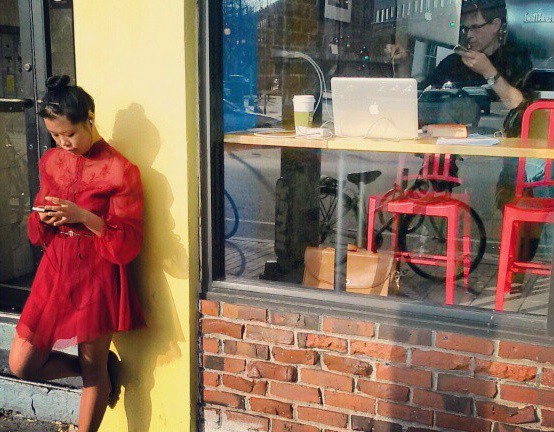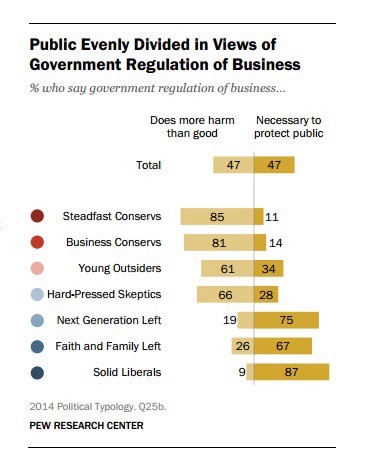How Americans Think About Fairness and the Economy
by Joshua Michtom

There is massive new Pew Research Center poll (185 glorious pdf pages) that dissects the attitudes of Americans on all sorts of things. There is much to mull over, starting with the study’s division of the American populace into eight ideological groups: Solid Liberals (all left all the time; like me, more or less), Steadfast Conservatives (fiscally and socially conservative), Business Conservatives (corporatist, but not so down on gays and immigrants), Young Outsiders (socially liberal Republicans), Hard-Pressed Skeptics (left-leaning, working class, disillusioned), Next-Generation Liberals (like the Solid Liberals, but unconvinced of the need for social programs or anti-discrimination legislation), Faith and Family Left (like the Solid Liberals, but homophobic), and (boringly) Bystanders, who are what they sound like: disengaged and uninformed.
These groups break down mostly as you’d expect (although the right is more polarized than the left). The study is full of charts that show the spread of each group’s opinions across some typical left-right divide, and they all pretty much look like this one:

Interestingly, though, that trend breaks down when survey participants are asked whether the economic system in this country unfairly favors the powerful. Predictably, 88% of Solid Liberals say yes, but even a slim majority of Steadfast Conservatives (48% to 47%) say yes. Of all the groups, only (surprise!) the Business Conservatives tend to think that the economic system is fair. But! Somehow, a lot of people from most of these subgroups (42% of the Next Generation Left, for example) think that poor people are poor principally because of a lack of effort on their part. And 63% of Americans from across this spectrum believe that black people who can’t get ahead are “mostly responsible for their own condition.”
I find all of this fascinating, but I’m not sure I’m smart enough to tease out the deeper meaning. Actually, I think I know what the deeper meaning is, but since it’s pretty much the conclusion I always reach, I’m open to the possibility that I’m being my usual dogmatic self and not getting it. It seems to me that Americans’ deep belief in the up-by-the-bootstraps magic of the American Dream is blinding us to the fact that structural inequities screw most of us over most of the time. Please, dear readers, if you think I’m wrong on that point, politely explain why (being careful not to hurt my feelings). And whether you think I’m wrong or right, tell me why you think people can generally think a system is unfair in favor of the rich, but also generally believe that the poor are to blame for being and staying poor.
Photo by the author.
Support The Billfold
The Billfold continues to exist thanks to support from our readers. Help us continue to do our work by making a monthly pledge on Patreon or a one-time-only contribution through PayPal.
Comments